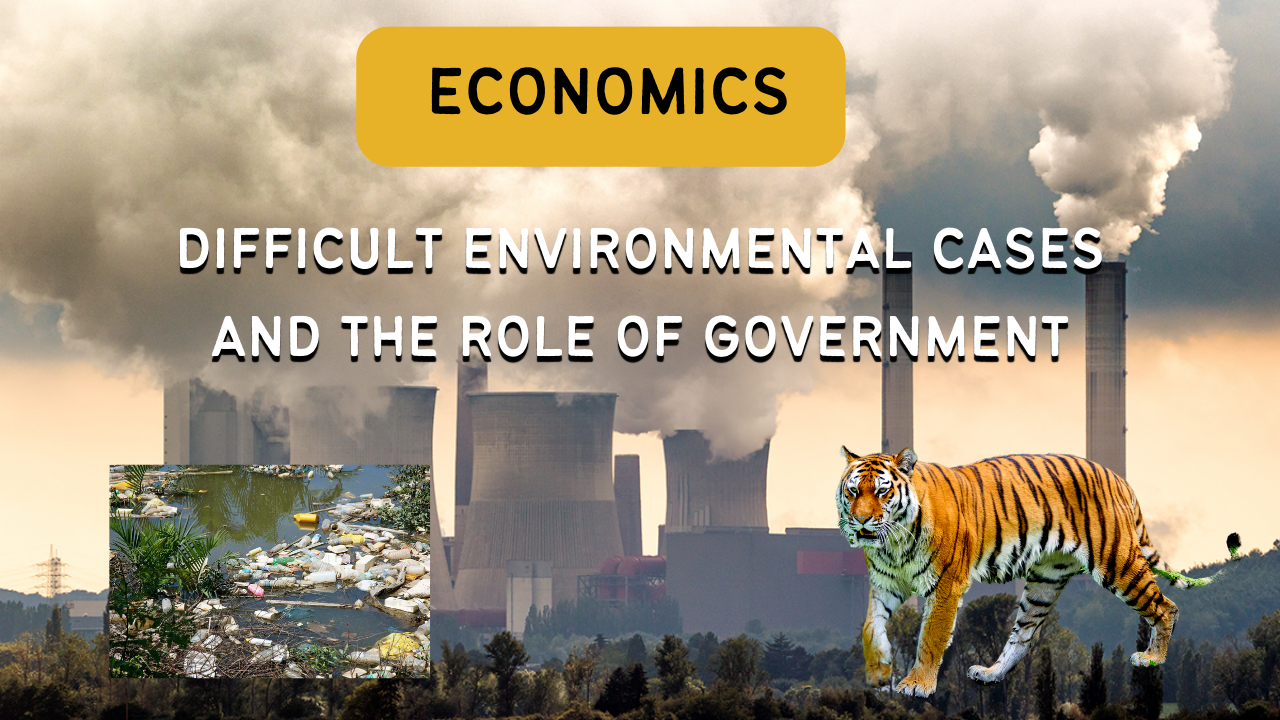Difficult environmental cases and the role of government
As the world continues to grapple with environmental challenges such as climate change, pollution, and biodiversity loss, governments are faced with the daunting task of developing policies and regulations that balance economic growth with environmental protection. From an economic perspective, these decisions can be difficult, as they often involve trade-offs between short-term economic gains and long-term environmental sustainability.
One of the most significant challenges facing governments today is climate change. As global temperatures rise, the effects are becoming increasingly apparent, from more frequent and severe natural disasters to rising sea levels threatening coastal communities. While reducing greenhouse gas emissions is necessary to mitigate the worst effects of climate change, it can also have economic implications.
For example, industries that rely heavily on fossil fuels, such as the oil and gas sector, may face significant economic losses if policies are implemented to reduce their carbon footprint. At the same time, there is growing evidence that investing in renewable energy and other low-carbon technologies can create new economic opportunities and jobs.
Another environmental challenge that governments must address is pollution. While some types of pollution, such as air pollution, can have significant health impacts, others, such as plastic pollution, can harm ecosystems and wildlife. Governments can play a critical role in addressing these issues through policies such as taxes on polluting industries, regulations on the use of harmful chemicals, and incentives for companies to adopt cleaner technologies.
However, these policies can also have economic consequences. For example, companies that rely on single-use plastics may face higher costs if they are required to switch to more environmentally friendly alternatives. Similarly, industries that rely on chemicals that are harmful to the environment may face increased costs if they are required to adopt safer alternatives.
Biodiversity loss is another pressing environmental issue that requires government intervention. The loss of species and habitats can have significant economic impacts, as it can reduce the availability of natural resources and disrupt ecosystems critical to human well-being. Governments can address this issue through policies such as protected areas, habitat restoration, and conservation programs.
However, these policies can also have economic implications. For example, restrictions on using natural resources in protected areas may limit economic opportunities for industries such as logging and mining. At the same time, investing in conservation programs and habitat restoration can create new economic opportunities in areas such as eco-tourism and sustainable agriculture.
In conclusion, environmental challenges such as climate change, pollution, and biodiversity loss require government intervention. While policies and regulations aimed at protecting the environment can have economic implications, the long-term benefits of environmental sustainability often outweigh the short-term costs. As such, governments need to develop policies that balance economic growth with environmental protection and to work with industry and other stakeholders to find innovative solutions that promote both economic prosperity and environmental sustainability.



